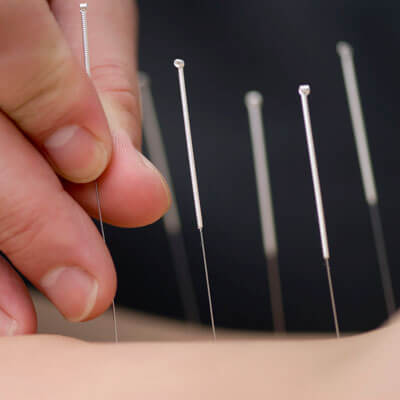 Acupuncture, an ancient healing practice that originated in China, has gained popularity worldwide for its potential to treat a wide range of health conditions. In Canada, acupuncture is a sought-after alternative therapy.
Acupuncture, an ancient healing practice that originated in China, has gained popularity worldwide for its potential to treat a wide range of health conditions. In Canada, acupuncture is a sought-after alternative therapy.
Is acupuncture covered in Canada?
The good news for Canadians seeking acupuncture treatment is that many insurance plans do cover this alternative therapy. However, it’s essential to check the specific terms and conditions of your insurance policy to confirm the extent of coverage. So, if you are considering acupuncture as part of your healthcare regimen, be sure to reach out to your insurance provider and inquire about your coverage options. Call 306-651-2225 for help!
How soon do you see the benefits of acupuncture?
When it comes to the effectiveness of acupuncture, patience is key. While some individuals may experience immediate relief, it is not always the case for everyone. Acupuncture primarily focuses on stimulating the body’s natural healing processes, which may take time to show noticeable results.
On average, patients report feeling better after 6 to 8 acupuncture sessions, noting some relief after each session. However, this can vary from person to person, depending on their specific condition and how their body responds to the treatment. Some individuals may require more treatments to alleviate their symptoms fully, while others may experience relief sooner with fewer sessions. It’s essential to maintain regular appointments with a qualified acupuncturist to give the therapy enough time to work effectively.
What conditions can acupuncture treat?
Acupuncture has been recognized as a viable treatment option for various health conditions. While it is essential to consult with a qualified practitioner before starting any treatment, acupuncture has shown promising results in helping manage and alleviate the following conditions:
Back pain: Acupuncture can effectively reduce pain and improve mobility in individuals suffering from chronic or acute back pain.
Sciatica: By targeting specific acupoints, acupuncture can relieve the pain and discomfort associated with sciatica.
Headaches: Acupuncture has been found to reduce the frequency and intensity of headaches, including tension headaches and migraines.
Arthritis: For those dealing with arthritis pain and inflammation, acupuncture can provide relief and improve joint function.
Sinusitis: Acupuncture can help alleviate sinus congestion and inflammation, providing relief from sinusitis symptoms.
Anxiety: Acupuncture is known for its calming effects, making it a complementary therapy for individuals dealing with anxiety and stress.
Insomnia: Acupuncture may aid in improving sleep quality and addressing insomnia-related issues.
Smoking cessation: Some studies suggest that acupuncture can support individuals in their efforts to quit smoking by reducing withdrawal symptoms and cravings.
Acupuncture is an ancient healing practice that has found its place in modern healthcare systems around the world. In Canada, many insurance plans cover acupuncture, making it an accessible option for individuals seeking alternative therapies. While the benefits of acupuncture may not be immediate, consistent treatment can lead to significant improvements in various health conditions, ranging from back pain and arthritis to anxiety and insomnia.
Before undergoing acupuncture treatment, it is essential to consult with a qualified acupuncturist to create a personalized and effective treatment plan tailored to your specific needs and health concerns. If you are curious about acupuncture and if it is the right treatment for you, give us a call, we would love to help.
References
– Manheimer, E., White, A., Berman, B., Forys, K., & Ernst, E. (2005). Meta-analysis: acupuncture for low back pain. Annals of internal medicine, 142(8), 651-663.
https://www.ncbi.nlm.nih.gov/pmc/articles/PMC1725071/pdf/v039p00877.pdf
– Ji, M., Wang, X., Chen, M., Shen, Y., Zhang, X., & Yang, J. (2015). The efficacy of acupuncture for the treatment of sciatica: a systematic review and meta-analysis. Evidence-Based Complementary and Alternative Medicine, 2015. https://www.hindawi.com/journals/ecam/2015/192808/
– Vincent, C. A. (1989). A controlled trial of the treatment of migraine by acupuncture. The Clinical journal of pain, 5(4), 305-312. https://europepmc.org/article/med/2520420
https://www.verywellhealth.com/can-acupuncture-help-arthritis-pain-5105273
https://www.healthline.com/health/acupuncture-for-sinus
– Pilkington, K., Kirkwood, G., Rampes, H., Cummings, M., & Richardson, J. (2007). Acupuncture for anxiety and anxiety disorders-a systematic literature review. Acupuncture in Medicine, 25(1-2), 1-10. https://journals.sagepub.com/doi/abs/10.1136/aim.25.1-2.1
https://www.healthline.com/health/acupuncture-for-sleep#benefits
– Wang, J. H., van Haselen, R., Wang, M., Yang, G. L., Zhang, Z., Friedrich, M. E., Wang, L. Q., Zhou, Y. Q., Yin, M., Xiao, C. Y., Duan, A. L., Liu, S. C., Chen, B., & Liu, J. P. (2019). Acupuncture for smoking cessation: A systematic review and meta-analysis of 24 randomized controlled trials. Tobacco induced diseases, 17, 48. https://doi.org/10.18332/tid/109195
